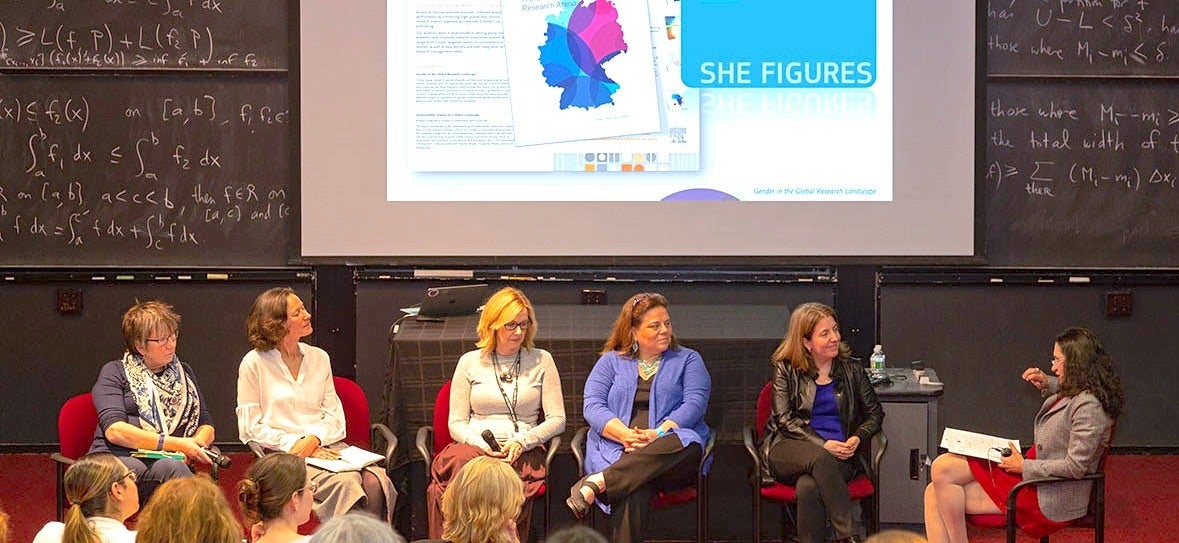“How does having access to scientometric data accelerate the pace with which we can eliminate gender differences in academic success? And which critical datasets can be extracted from this wealth of information to really move forward the agenda of career advancement?”
These were questions posed by Professor and HDSI Co-Director Francesca Dominici who moderated a panel on Representation in Academia hosted by the Harvard Data Science Initiative (HDSI), and attended by colleagues from Harvard, Elsevier and the National Science Foundation (NSF). Other participants from the Biostats Department included Professor Sharon-Lise Normand and doctoral student Emma Thomas, who presented a paper she co-authored with Dominici on “Gender differences in authorship of invited commentary articles in medical journals: a matched case-control study”.
In the panel and subsequent workshop, participants shared their observations and discussed potential data science projects to address the well-documented challenges women face in academia and STEM. In addition to discussing what kind of data is needed, and how it can answer questions and motivate change, participants discussed strategies for taking action. These ranged from the application of Elsevier software tools to enable broader candidate searches, to strategies for documenting gender differences in authorship, network building, and career progression, to crafting policy that leads to more equal opportunities.
According to Elsevier’s CEO Kumsal Bayazit, “we all know the issues, but we don’t always know the solutions. This is where data science comes in.”




